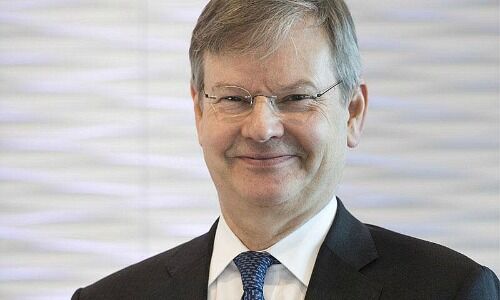The impact of the Russian invasion on Ukraine on the global economy has been limited so far, with Switzerland being less exposed than many other countries. Stefan Gerlach, chief economist at EFG Bank, explains in a finews.com interview.
The Russian attack only started a month ago and there are obvious risks of further and more severe shocks. Nevertheless, so far Switzerland hasn’t been hugely affected by the crisis.
Although the franc rose sharply immediately after the war started, briefly reaching parity with the euro, as is to be expected for a safe-haven currency, it has since dropped back to 1.03 francs per euro.
In contrast to many other countries, Switzerland relies more on hydro-electric and nuclear power and is less dependent on oil and gas, which limits the upward pressure on inflation, Stefan Gerlach says.
Economic Impact
As a result, an interest rate increase was not expected at Thursday's Swiss National Bank (SNB) meeting. It seems unlikely that the rates will be increased until late this year or early next year, absent new shocks, according to Gerlach.
So far the world economy has been able to absorb the economic impact of the war, Gerlach says.
«I think the markets’ immediate reaction when the invasion started was that the war would spread and escalate. While the effects on the world economy so far have been muted, it is a horrendous disaster for the people in Ukraine» he says.
Trillion Franc Distraction
The economies in Eastern Europe will be most severely affected. Rising wheat and food prices risks undermining stability in the Middle Eastern and North African regions, Gerlach says.
«In the bigger picture, the global macroeconomic impact is likely to be somewhat lower growth and somewhat higher inflation in 2022. I don't think we will see a global recession unless the war spreads,» he adds.
The SNB’s very large balance sheet is a distraction and complicates monetary policy, Gerlach says. A smaller balance sheet would enable the SNB to focus squarely on monetary policy and avoid the risk of political pressures that such large reserves will unavoidably attract. How large the reserves should be is ultimately a question for parliament, he says.




































